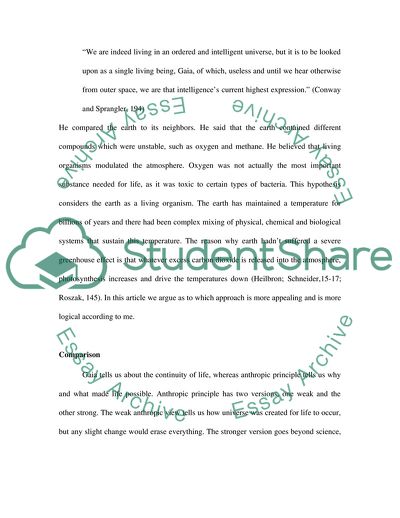Cite this document
(Gaia and Anthropic Views by Philosophers and Scientists Essay Example | Topics and Well Written Essays - 1250 words, n.d.)
Gaia and Anthropic Views by Philosophers and Scientists Essay Example | Topics and Well Written Essays - 1250 words. https://studentshare.org/science/1760326-environmental-ethics-philosophy
Gaia and Anthropic Views by Philosophers and Scientists Essay Example | Topics and Well Written Essays - 1250 words. https://studentshare.org/science/1760326-environmental-ethics-philosophy
(Gaia and Anthropic Views by Philosophers and Scientists Essay Example | Topics and Well Written Essays - 1250 Words)
Gaia and Anthropic Views by Philosophers and Scientists Essay Example | Topics and Well Written Essays - 1250 Words. https://studentshare.org/science/1760326-environmental-ethics-philosophy.
Gaia and Anthropic Views by Philosophers and Scientists Essay Example | Topics and Well Written Essays - 1250 Words. https://studentshare.org/science/1760326-environmental-ethics-philosophy.
“Gaia and Anthropic Views by Philosophers and Scientists Essay Example | Topics and Well Written Essays - 1250 Words”. https://studentshare.org/science/1760326-environmental-ethics-philosophy.


